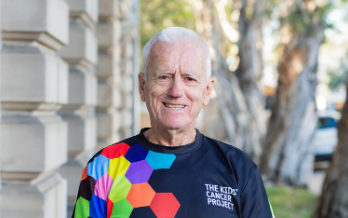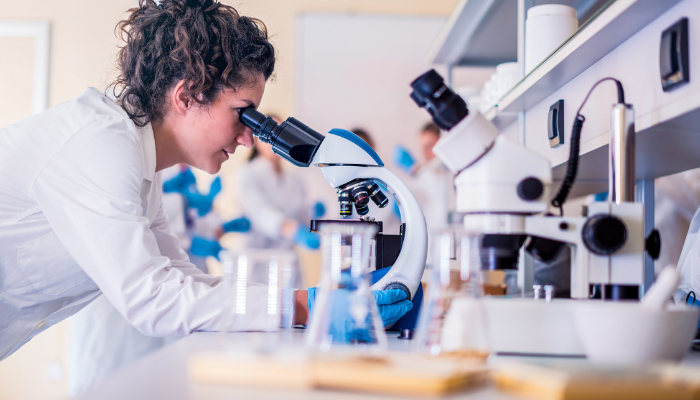
Recipient: Dr Katherine Pillman
Institute: The University of South Australia
Funding: $616,945.00
Dr Katherine Pillman is a passionate computational biologist. Beginning her career as a molecular biologist, she has always been fascinated by how genes can control how cells work, grow and behave. The major focus of Dr Pillman’s current research at the Centre for Cancer Biology (an alliance between South Australia Pathology and the University of South Australia) is neuroblastoma, a devastating cancer that affects very young children. Her group uses bioinformatics which involves using mathematical modelling and high-performance computing to dissect, visualise and make sense of big data from cutting-edge sequencing technology. She seeks to uncover how genes control the properties of neuroblastoma tumours, including differences in cancer subtypes and responses to treatments.
Motivations
Cancer is a terrible burden on our society and so hugely pervasive that none of us remains untouched by it. I became interested in cancer research when I had retrained as a bioinformatician and was looking to return from my post-doctoral position in the USA in 2012. Bioinformatics thrives on big, complex datasets, and data from huge cancer cohorts was becoming available at the time. I saw cancer research as somewhere my bioinformatics skills could have a real impact and I was motivated by the idea of being part of the collaborative effort to develop cures that could help so many people.
Researching neuroblastoma
My research focuses on a childhood cancer called neuroblastoma which is responsible for 15% of all childhood cancer deaths. Neuroblastoma affects very young children, often only one or two years of age at diagnosis. It is an unusually diverse cancer and "high-risk" patients have inconsistent responses to treatment. Due to this, and because, as yet there’s no reliable targeted therapy, high-risk children are typically given highly invasive and toxic therapies such as surgery, chemotherapy and radiation therapy. These treatments are so severe that even if these little patients recover from their cancer, they often have life-long debilitating side effects. We urgently need better drugs and more tailored treatment regimens to ensure a child’s long-term healthy survival.
Using big data to help little kids
My project is about “Using big data to improve the lives of children with neuroblastoma”. Neuroblastoma is a cancer often found in the small glands on top of the kidneys (adrenal glands). It can develop in the stomach, chest, neck, pelvis and bones. Neuroblastoma is often a deadly cancer mostly affecting children under five years of age. The current treatment regime is harsh and only moderately effective, with terrible life-long side effects. Although many tumours spontaneously regress without treatment, currently we can’t accurately predict which children can safely skip treatment.
In either case, the consequences of under and over-treatment are terrible. My project will use molecular modelling to understand what causes the differences between patients’ tumours and how these differences impact their treatment needs. We will create lab models of different types of neuroblastomas and will use these to test and develop better drug therapies to create better, more tailored treatment programs for children in the future.
Finding better solutions
Kids with neuroblastoma need better solutions. These will come from better drugs and from a better understanding of the molecular mechanisms that underpin neuroblastoma and determine patient responses to treatment. In this way, we can guide clinical decisions to avoid over- or under-treatment, both of which are devastating. My research uses the latest technological advances in gene sequencing and computational modelling to better understand the differences between the tumours of individual neuroblastoma patients. I aim to improve diagnosis and treatment by better understanding tumour subtypes and identifying new targets and new drugs to treat neuroblastoma.
This will ultimately define the appropriate level of therapy required for each child with neuroblastoma and contribute to the development of new treatment approaches to help high-risk patients who are in the most need.
The importance of research
Survival rates for neuroblastoma have improved in recent years but sadly, this is not without a high cost. The improvement largely stems from the broad application of a successful yet aggressive treatment regime which has a range of devastating life-long side effects. Worse, in many cases, the treatment would likely not have been necessary as many children’s tumours spontaneously regress without treatment. Right now, we can’t accurately predict which ones. We need to save these kids, both from death by disease and also from the terrible side effects of the treatments. We can only improve and personalise treatment options through a better understanding of each individual child’s disease and drug development.
Col Reynolds Fellowship
It feels fantastic to be an inaugural recipient of the Col Reynolds Fellowship and it’s a profound honour that fills me with both gratitude and motivation. This prestigious Fellowship is a tremendous opportunity that is providing me with vital financial support to continue my research in neuroblastoma and enabling me to pursue innovative projects powered by cutting-edge technologies and further my collaborations with experts in paediatric cancer. At a personal level, it opens doors to new opportunities, boosts my confidence and enhances my visibility within the scientific community.
Col’s personal story of building The Kids’ Cancer Project is such an inspirational example of the power of a single person making a difference to sick kids. I feel a great sense of purpose, determination, and pride in being part of The Kids Cancer Project community which is dedicated to combating paediatric cancer. I am immensely grateful and excited to embark on the journey.
Thank you!
I want to extend my heartfelt thanks to each and every donor who has contributed to The Kids’ Cancer Project for their generous support of childhood cancer research. Your compassion and commitment to making a difference in the lives of young cancer patients and your belief in the importance of paediatric cancer research made this fellowship possible. The impact of this Fellowship will be enormous, both on my research and personally, and I pledge to make the most of this invaluable opportunity to positively impact the lives of young cancer patients and their families. Thank you for your kindness and generosity.
I would like to express my deep appreciation to The Kids' Cancer Project group for their support and belief in the potential of younger researchers like me. I am committed to using this platform to drive meaningful change for kids and families with cancer and am honoured to be a part of The Kids’ Cancer Project team’s collective effort.
Find out more about the Col Reynolds Fellowship
With an investment of over $7.6 million, The Kids’ Cancer Project is ensuring that some of the best and brightest young researchers in Australia can further their careers and most importantly, their impact on childhood cancer research.


Read more from past recipients
From a field of outstanding candidates across Australia, The Kids’ Cancer Project has funded the next generation of childhood cancer researchers. Their science-backed research is sure to deliver breakthroughs across a range of areas relating to childhood cancer.
